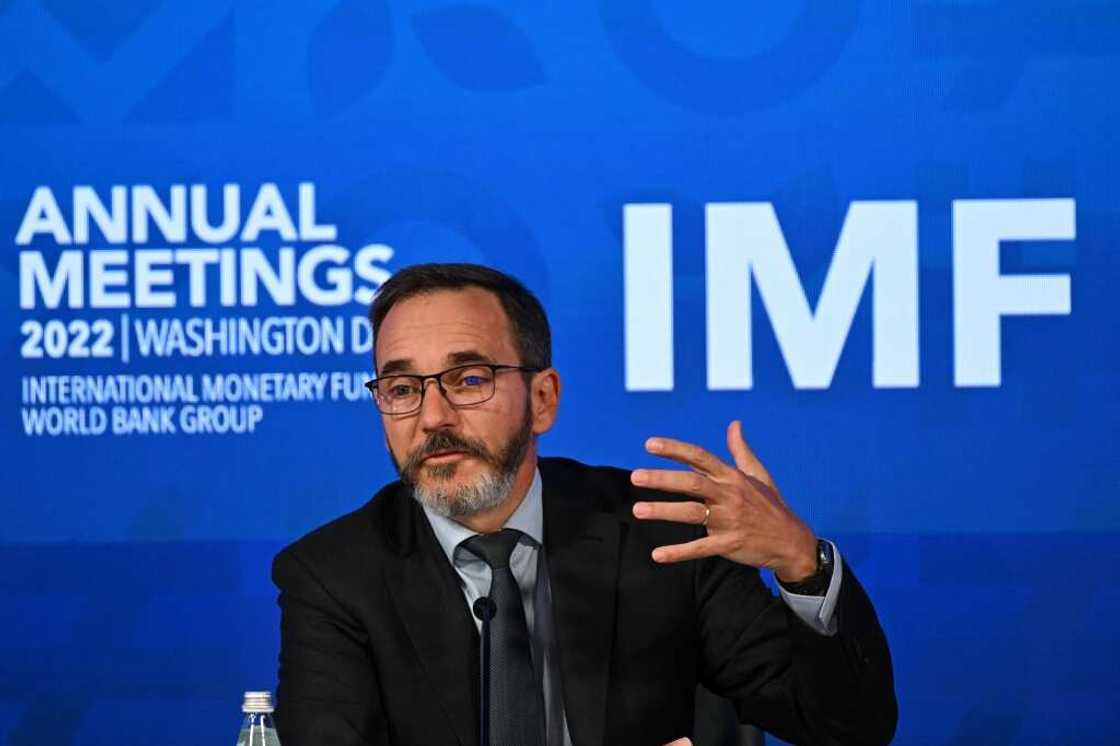IMF cuts 2023 global growth, warns major economies to stall

Source: AFP
Global growth is expected to slow further next year, the IMF said Tuesday, downgrading its forecasts as countries grapple with the fallout from Russia's invasion of Ukraine, spiraling cost-of-living and economic downturns.
The world economy has been dealt multiple blows, with the war in Ukraine driving up food and energy prices following the coronavirus outbreak, while soaring costs and rising interest rates threaten to reverberate around the globe.
"This year's shocks will re-open economic wounds that were only partially healed post-pandemic," said International Monetary Fund economic counsellor Pierre-Olivier Gourinchas in a blog post accompanying the fund's latest World Economic Outlook.
More than a third of the global economy is headed for contraction this year or next, and the three biggest economies –- the United States, European Union and China –- will continue to stall, he warned.
"The worst is yet to come and, for many people 2023 will feel like a recession," said Gourinchas.
In its report, the IMF trimmed its 2023 global GDP forecast to 2.7 percent, 0.2 points down from July expectations.
PAY ATTENTION: Subscribe to Digital Talk newsletter to receive must-know business stories and succeed BIG!
Its world growth forecast for this year remains unchanged at 3.2 percent.
The global growth profile is its "weakest" since 2001, apart from during the global financial crisis and the worst of the pandemic, the IMF said.
This reflects slowdowns for the biggest economies, including a US GDP contraction in the first half of 2022 and continued lockdowns in China as it faces a property market crisis.
Laser focus
A key factor behind the slowdown is a shift in policy as central banks try to bring down soaring inflation, with higher interest rates starting to take the heat out of domestic demand.
Growing price pressures are the most immediate threat to prosperity, said Gourinchas in the report, adding that central banks are now "laser-focused on restoring price stability".
Global inflation is expected to peak at 9.5 percent this year before dropping to 4.1 percent by 2024.
Misjudging the persistence of inflation could prove detrimental to future macroeconomic stability, he warned, "by gravely undermining the hard-won credibility of central banks."
Asked about the Federal Reserve's rate hikes, Gourinchas told a press briefing on Monday that the IMF is not calling for an acceleration, but this "doesn't mean that they should pause on the path... that we've seen" either.
This is because banks were starting from a point where rates were historically low as countries emerged from the pandemic, he said.
Current challenges do not mean a large downturn is inevitable, but the fund also warned many low-income countries are either in, or close to debt distress.
Progress toward debt restructurings for the hardest-hit is needed to avoid a wave of sovereign debt crisis.
"Time may soon be running out," said Gourinchas.
While the G20 has agreed on a "common framework" for debt restructuring for the poorest countries, only three have qualified and "more progress is needed," he told reporters.
US slowdown
The IMF has also cut forecasts for the world's two biggest economies, the United States and China.
US economic growth for this year is now pegged at 1.6 percent, 0.7 points below the fund's July forecast, due to an "unexpected real GDP contraction in the second quarter," the IMF said.
"Declining real disposable income continues to eat into consumer demand, and higher interest rates are taking an important toll on spending," the report added.
The Federal Reserve has been raising interest rates aggressively to tamp down surging inflation, which is slowing economic activity. And the central bank has said more increases are likely to come.
A slowdown in the Euro area is expected to deepen next year, with the German and Italian economies slightly contracting, the IMF projects.
China's economy is expected to grow at only 3.2 percent this year -- its lowest rate in decades, apart from the initial coronavirus outbreak.
The fund cautioned that a worsening of China's property sector slump could spill over to the domestic banking sector and weigh heavily on growth.
Source: AFP






